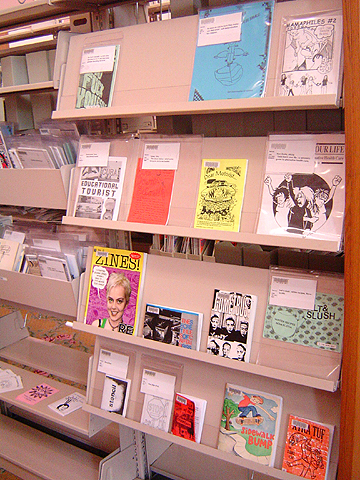CFP: The Far Right and Visual Politics (coll. vol.), 31.10.11
The Far Right and Visual Politics
Editor: Fabian Virchow
Deadline for proposals: 31 October 2011
Deadline for article: 15 June 2012
Expose
Although far right movements and political parties in the first half of the 20th century have paid great attention to their visual performance this dimension has not gained much of researchers’ interest for the post WW II period. This volume aims at investigating the use far right protagonists make of images and drawings as a crucial resource for the symbolic definition of political events and as a means to express their world view.
Post WW II far right movements and parties have displayed and disseminated myriads of visual material amongst which Youtube videos are some of the most recent expressions. Visual imagery has for decades been used to illustrate and support written statements (e.g. on leaflets) or has been combined with relatively short verbal messages (e.g. stickers and posters). Photographs and video foo-tage, drawings and cartoons are loaded with political and psychological potential; far right protagonists might refer to a powerful visual register in order to evoke implicit or explicit associations they expect to be supportive for far right politics.
The edited volume aims at presenting various approaches to this complex and multifaceted dimen-sion of far right politics and at combining both the breadth and the depth of research and exhibition in the various disciplines concerning this issue. Following a multi-disciplinary approach, contributions from media studies, sociology, political science, history, ethnography, visual sciences, critical dis-course analysis, and rhetoric are highly welcomed. Submissions should highlight original thought and critical thinking dealing with, for example, but not limited to the following themes:
- visualizing of far right leaders/leadership
- visualizing of race relations
- visualizing of gender roles and gender relations
- use of stickers and posters and their graphical composition
- design of banners at demonstrations
- use and composition of (images in) video-clips
- creation and outline of comic strip characters
- creation of graffiti and murals
- visual registers far right protagonists refer to
- visual images of the far right in the main stream media
All contributions will be refereed by at least two international reviewers in a double-blind review process. Upon acceptance of your proposal, you should prepare your chapter of 8,000-10,000 words or 60,000-70,000 characters including abstract, tables, listings and references. Guidelines for preparing your paper will be sent to you upon acceptance of your proposal.
Publication
This book will be published by Verlag für Sozialwissenschaften (VS) (www.vs-verlag.de). VS is part of the Springer Science+Business Media Group (www.springer.com) and is one of the leading German-speaking publishers in the field of social sciences. VS is currently expanding its range of English-speaking titles. The book will be published in the book series »Edition Rechtsextremismus« (»Edition Right-Wing Extremism«) edited by Fabian Virchow and Alexander Häusler who are affiliated to the Research Unit on Right-Wing Extremism at the University of Applied Sciences Düsseldorf, Germany.
Inquiries and Submissions
Authors are invited to submit a chapter proposal until October 31, 2011, clearly explaining the mission and concerns of his/her proposed chapter. The chapter proposal (circa 1,200 words or 8,400 characters) should comprise a (preliminary) title, author/s, the basic idea, theoretical assumptions, methodology approach, the empirical material and most relevant references.
Pleasesend your submission together with a short CV as a pdf-file and as a word-file e-mail attachment with [FR-VP proposal] or [FR-VP inquiry] in the subject line. Virus-infected and unreadable files will not be considered.
Proposals are to be sent to
Prof. Dr. Fabian Virchow
fabian.virchow@fh-duesseldorf.
Head of Research Unit on Right-Wing Extremism at the University of Applied Sciences, Duesseldorf
Düsseldorf/Germany/27-04-2011
Labels: academic, cfps, essay collections, politics



